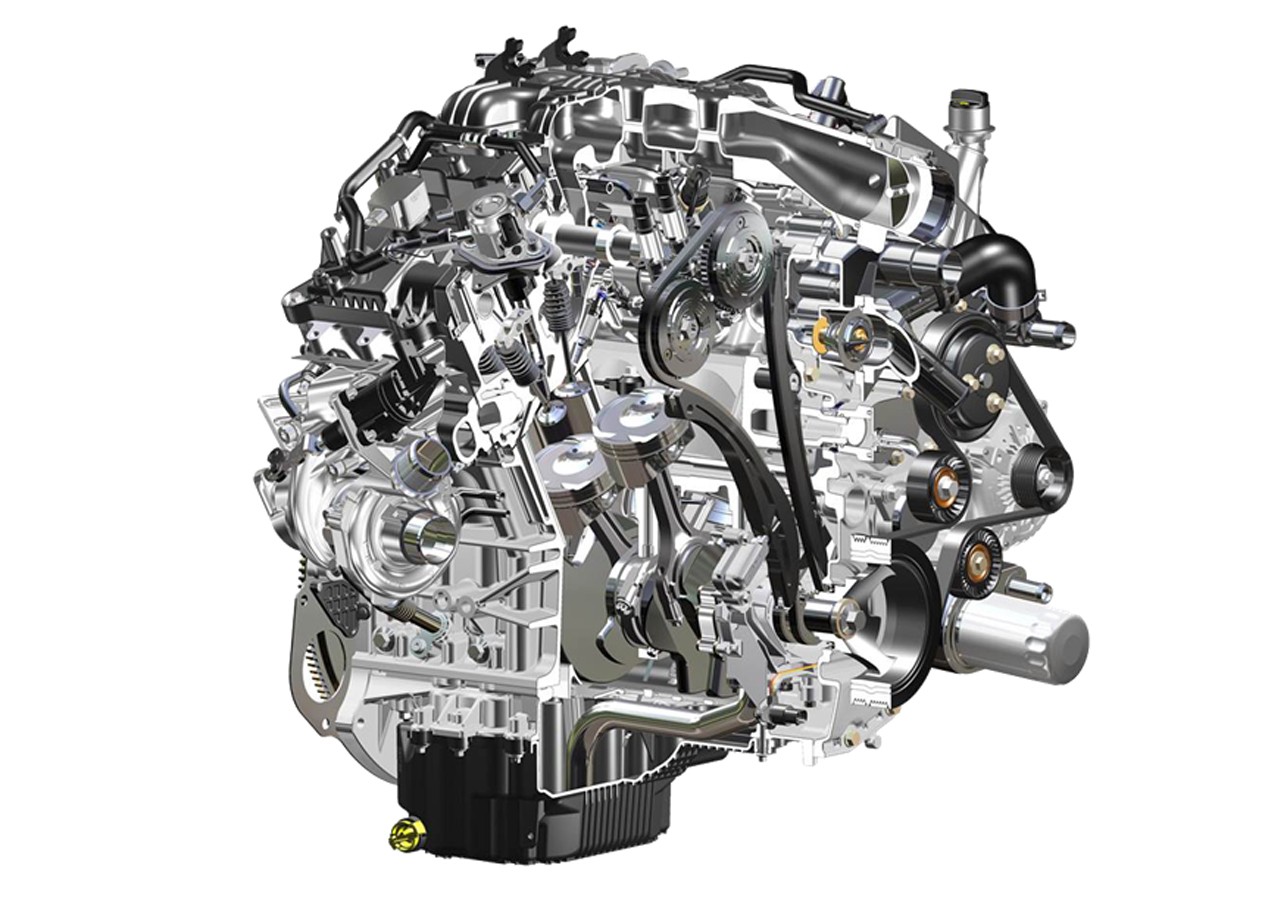What Fuel Should I Use In My F150 Ecoboost
Last Updated on by David Jon
As Ford F150 Ecoboost owners and enthusiasts, the question of which fuel to use in this particular model often arises. This piece aims to offer critical insights from expert mechanics and technical guides to help determine the ideal fuel choice for your F150 Ecoboost. From fuel efficiency to performance considerations, this article tackles the variables affecting each choice. Perfect for DIY fans, mechanics, and anyone with a keen interest in Ford maintenance, expect a professional, yet approachable discussion on this often debated topic.

Understanding the Ford F150 Ecoboost
Background of Ford F150 Ecoboost
The Ford F150 Ecoboost represents Ford’s commitment to combining performance and environmental responsibility. Engineered to maximize driving pleasure and efficiency, the Ford F150 Ecoboost has been a preferred choice for drivers who seek power paired with sustainability. The F150 Ecoboost, boasting impressive towing capacity and powerful performance, is a testament to Ford’s engineering prowess.
Features of the F150 Ecoboost
Among the many features that make the Ford F150 Ecoboost stand out, its engine deserves special mention. The F150 Ecoboost features a twin-turbocharged, direct-injection gas engine. This Ecoboost engine provides drivers with the power of a V8 engine, but the fuel efficiency of a V6. Other notable features include an aluminum body for weight reduction, advanced towing capabilities, and a high-strength steel frame, all contributing to higher performance and efficiency.
Ecoboost Technology Explained
Ecoboost is Ford’s innovative engine technology that pairs turbocharging and direct fuel injection. This combination significantly improves fuel efficiency and reduces CO2 emissions without compromising power and driveability. The turbocharger increases power output by forcing more air into the engine’s combustion chamber. In contrast, direct injection improves efficiency by delivering fuel directly into each cylinder.
Importance of Correct Fuel Choice
Fuel Efficiency Factors
The Ford F150 Ecoboost’s fuel efficiency relies on several factors, with the choice of fuel playing a pivotal role. The type of fuel used can affect engine performance, fuel consumption rates, and even the lifespan of the engine.
Impacts on Engine Performance
The correct fuel choice can optimize the engine’s combustion process, leading to increased power, smoother operation, and reduced engine wear. Conversely, using a suboptimal fuel will deteriorate engine performance, cause irregularities in combustion, and potentially damage the engine.
Impacts on Emission Levels
The type of fuel used in an F150 Ecoboost also influences the vehicle’s emission level. Some fuels burn cleaner than others, directly affecting the quantity and quality of gaseous emissions released into the environment.

Types of Fuel for Your F150 Ecoboost
Regular Unleaded Gasoline
Regular unleaded gasoline is the most common fuel used by F150 Ecoboost owners. It is readily available and more affordable compared to other fuel types.
Premium Unleaded Gasoline
Premium unleaded gasoline contains higher octane, providing better combustion, leading to improved vehicle performance and fuel efficiency.
Ethanol Flex-Fuel (E85)
Ethanol flex-fuel (E85) is a blend of 85% ethanol and 15% gasoline. This fuel is a more environmentally friendly option, with lower carbon emissions than regular unleaded gasoline.
Pros and Cons of Regular Unleaded Gasoline
Performance with Regular Unleaded
Using regular unleaded gasoline in an F150 Ecoboost does not harm the engine, but it may not fully exploit the engine’s potential for maximizing power and efficiency.
Fuel Economy of Regular Unleaded
While regular unleaded gasoline is cheaper than premium grades, it may result in poorer fuel economy due to less efficient combustion.
Price and Availability of Regular Unleaded
Regular unleaded gasoline is more affordable and widely available compared to other fuel types, making it a convenient choice for most consumers.

Pros and Cons of Premium Unleaded Gasoline
Performance with Premium Unleaded
Premium unleaded gasoline can optimize the engine’s performance and provide better fuel efficiency due to more efficient combustion.
Fuel Economy of Premium Unleaded
Although premium unleaded gasoline is typically more expensive, the improved combustion efficiency may result in a better fuel economy, hence counters the initial higher fuel cost.
Price and Availability of Premium Unleaded
Premium unleaded gasoline is generally more pricey and can be less available, particularly in rural areas.
Pros and Cons of Ethanol Flex-Fuel (E85)
Performance with E85
Ethanol flex-fuel (E85) may not deliver the same power output as gasoline fuels but provides a smoother and cleaner engine operation due to its higher octane rating and cleaner combustion.
Fuel Economy of E85
Vehicles using E85 typically experience lower fuel economy than those using gasoline.
Price and Availability of E85
E85 fuel is generally less expensive than regular gasoline, but its availability might be limited, especially in areas where its use is not widespread.
Effects on the Engine and Fuel System
Use of E85 fuel over prolonged periods may cause damage to the engine and fuel system if not specifically designed for its use.

Manufacturer’s Recommendations for Fuel
Ford’s Official Statement on Fuel Use
According to Ford, while regular unleaded fuel is acceptable, premium fuel is recommended for the F150 Ecoboost to gain the highest performance and efficiency. E85 fuel can be used in Flex-Fuel vehicles.
Where to Find Ford’s Fuel Recommendations
Ford’s specific fuel recommendations for each model can be found in the vehicle’s owner’s manual.
Impact of Fuel Choice on Warranty
Implications of Incorrect Fuel Use
Using incorrect fuel types may void your Ford’s warranty if it results in engine damage.
Permissible Fuels According to Ford’s Warranty
Ford’s warranty covers the use of regular, premium, and flex-fuel(E85) in their vehicles. Always refer to the vehicle’s manual for specific fuel recommendations.

Alternatives and Additives
Fuel Additives: Pros, Cons, and Recommendations
Fuel additives can improve fuel quality, enhance performance and reduce emissions. However, an incorrect choice may harm the engine. Ford recommends additives compliant with the ASTM D 4814.
Alternative Fuels: Natural Gas, Biodiesel, and Others
Alternative fuels like natural gas and biodiesel can be used in Ford vehicles designed for their use. These fuels have their own advantages and disadvantages and are typically used for fleet vehicles.
Choosing the Right Fuel for Your Needs
Comparison: Fuel Types and Their Impact on Performance
While performance and fuel economy are noticeably better with premium gasoline, regular unleaded is widely available and affordable. E85, though not as powerful, burns cleaner and is cheaper.
Economic Factors in Choosing Fuel
While premium unleaded enhances performance and efficiency, it is costly. Regular unleaded is budget-friendly but might reduce fuel efficiency. E85 is cheaper but affects the fuel economy.
Environmental Considerations in Fuel Choice
E85 is a good choice for those prioritizing environmental considerations due to its lower carbon emissions.


